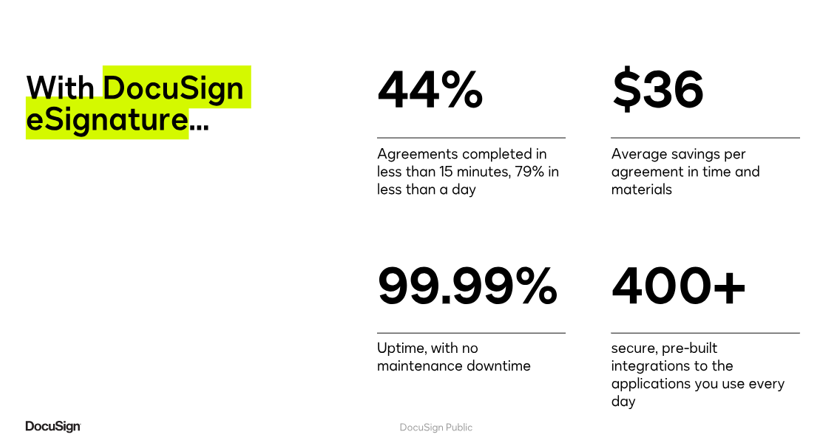Agreements are an indispensable part of any business. They are everywhere – from offer letters to quotes to sales contracts to NDAs to invoices to account openings and more. Manual agreements made traditionally are paper-based and are thus, not environment-friendly. Further, they reduce overall business productivity, delay outcomes, and may create compliance and/or legal risks, if not executed timely. Thus, organizations need a modern way to do business transactions – digitally, reliably, and safely.
That’s where electronic signatures or e-signatures come in.
An electronic signature, often referred to as an e-signature, is the digital representation of a person’s handwritten signature or a symbol or code used to sign electronic documents or transactions.
Electronic signatures are used to authenticate and signify an individual’s intent to approve or accept the contents of an electronic document, contract, or agreement.

Key characteristics of electronic signatures:
- Digital Representation: An electronic signature can take various forms, including a scanned image of a handwritten signature, a typed name, a digital stamp, or a unique code.
- Authentication: Electronic signatures are often linked to the identity of the person signing the document. This may involve using authentication methods such as passwords, PINs, biometrics, or two-factor authentication to ensure the signature’s validity.
- Intent: By signing electronically, the individual signifies their intention to agree to the terms and conditions outlined in the document.
- Non-repudiation: Electronic signatures are designed to make it difficult for the signer to deny their involvement or approval of the document’s content, enhancing the document’s legal enforceability.
Electronic signatures have gained widespread acceptance and legal recognition in many countries and industries, thanks to various laws and regulations (such as the Electronic Signatures in Global and National Commerce Act in the United States). They offer numerous advantages, including efficiency, convenience, and reduced paperwork, making them a common choice for businesses and individuals for signing contracts, agreements, and other documents in a digital environment.
Types of electronic signatures
Electronic signatures come in several different types, each with varying levels of security, complexity, and legal recognition. Here are the main types of electronic signatures:
- Basic electronic signature (BES): A basic electronic signature is the simplest form of electronic signature. It can be as simple as typing your name or pasting an image of your handwritten signature into a document. BES is often used for informal agreements or internal documents and may have limited legal enforceability.
- Advanced electronic signature (AES): An advanced electronic signature is more secure and carries greater legal weight than a basic electronic signature. It typically involves additional measures to ensure the signer’s identity and the document’s integrity. AES may include biometric authentication, secure PINs, or cryptographic techniques.
- Qualified electronic signature (QES): A qualified electronic signature is the highest level of electronic signature under many legal frameworks, such as the European Union’s eIDAS regulation. QES involves the use of a qualified certificate issued by a trusted certification authority. It provides the highest level of security and legal validity.
- Digital signature: A digital signature is a specific type of electronic signature that relies on cryptographic techniques to ensure the authenticity and integrity of a document. It involves the use of a private key to create the signature and a corresponding public key to verify it. Digital signatures are highly secure and widely accepted for legal and business transactions.
- Biometric signature: Biometric signatures use unique physical or behavioral characteristics of the signer, such as fingerprints, voice recognition, or facial recognition, to authenticate their identity. These signatures are difficult to forge and offer a high level of security.
- Typed or text-based signature: This is a form of electronic signature where the signer types their name into a designated field or inserts a textual representation of their signature. While easy to create, its legal validity may vary depending on local laws and the intent of the parties involved.
- Voice signature: Voice signatures involve recording the signer’s voice as a means of verification and acceptance of an agreement. Voice recognition technology can be used to ensure the authenticity of the voice signature.
- Signature pad or stylus signature: This method involves using a stylus or signature pad to capture a handwritten signature electronically. It is often used in physical stores or at point-of-sale locations.
The choice of electronic signature type depends on factors such as the level of security required, legal requirements in the jurisdiction, the sensitivity of the document, and the preferences of the parties involved in the transaction. It’s important to select the appropriate type of electronic signature to meet the specific needs and legal obligations of a given situation.
DocuSign eSignature:
There are many companies that provide electronic signatures as a service. ZNetLive a distributor of DocuSign that offers eSignature solutions at affordable prices for businesses of all sizes. DocuSign is a provider of online digital signature solutions, offering invaluable support to businesses seeking to transition to a more efficient and sustainable document management system.

DocuSign distributed by ZNetLive presents a user-friendly eSignature platform that streamlines the signing procedure. Users have the flexibility to effortlessly upload their documents, designate recipients requiring signatures, and establish a clear signing sequence. Mobile-ready as well as secure and compliant with all the industry standards, DocuSign signatories can digitally endorse documents using methods such as a mouse or touchpad or by utilizing alternative authentication options.
Pricing
Below are plans and pricing for DocuSign eSignature by ZNetLive:
Standard: Perfect for small to medium sized teams, the Standard plan allows the user to customize branding, share templates, reuse templates and send up to 5 envelopes per month.
Business Pro: Good for medium to large teams, the Business Pro plan provides all the features of the Standard plan as well as signer attachments, power forms, bulk send, payment, and more.
To find out the plan that works best for your business, contact the sales team of ZNetLive at sales@znetlive.com.
Read Next: HubSpot vs. Salesforce: Which is right for you in 2023?


